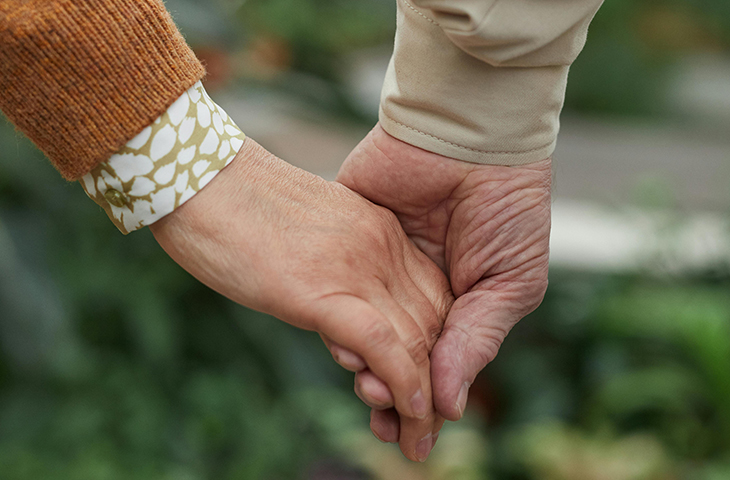Election Anxiety Is Telling You Something

Americans are anxious about the election. The American Psychological Association’s annual Stress in America survey found that, as of August, politics was the leading cause of stress for seven out of 10 adults across party lines. In a poll from a mental-health-care company the same month, 79 percent of respondents reported that the presidential election made them feel anxious this year, and more than half thought about the election every day. Now that the election is imminent, one can only assume that Americans’ anxiety is even higher.
Many U.S. media outlets have responded by offering their readers advice on how to calm down. Type election anxiety into Google, and you’ll find dozens of articles instructing you to focus on aspects of life outside of politics, to spend less time watching the news, or to use relaxation techniques such as breathing exercises to subdue the negative feelings
But there’s another way to think about election stress: A big event should prompt big feelings. The stakes of this election go far beyond anyone’s preferred party winning or losing. “Voters on both sides of the aisle are being given a message that if the other side wins, this will be the end of American democracy as they know it,” Andrew Civettini, a political scientist at Knox College, told me. Why wouldn’t you feel anxious?
In Western philosophy and psychology, emotions have long been cast as the opposite of reason. In Stoicism, emotions are considered “non-reasoning movements,” wild inner beasts that a person has to keep in check in order to live well. During the Enlightenment, reason was widely considered a better guiding force than the senses or the emotions. This notion occasionally rears its head in cognitive-behavioral therapy, which teaches patients that feelings aren’t facts, so that they can act despite their anxiety or insecurity. This week, Arianna Huffington argued in Time magazine that Americans shouldn’t be stressed out by polls. “The way to best affect outcomes is to find the eye of the hurricane, and act from that place of inner strength and wisdom,” she wrote.
But political emotions motivate action all the time. “When we experience anxiety about politics, it causes us to pay more attention, and that could have positive learning effects,” Civettini said. Steven Webster, a political scientist at Indiana University, has found that political anger can push people to vote and donate to campaigns. People can, Webster told me, get too emotional about politics: Too much anger, anxiety, or fear might motivate people to support political violence, or isolate themselves from any person or news source that doesn’t confirm their beliefs. But overall, he said, “it’s not obvious to me that we should want to reduce political emotions.”
Although emotions, with their heat and urgency, can overtake and weaken people, the philosopher Martha Nussbaum has argued that they reflect inner judgments and evaluations—in other words, that they are reasonable and intelligent responses to real-world events. For example, to have fear, as Nussbaum wrote in her book Upheavals of Thought, “I must believe that bad events are impending; that they are not trivially, but seriously bad; and that I am not entirely in control of warding them off.” In this way, Nussbaum noted, emotions—not some mythic, unemotional source of rationality—reveal what we require to live well and flourish.
Throughout history, major political shifts have been met with equally big feelings, says Kerstin Maria Pahl, a historian of political emotion at the Max Planck Institute for Human Development and a co-editor of the 2022 book Feeling Political. Apathy, a longstanding Christian concept, became part of Western political language at the end of the 18th century. “Not being affected by something made you a bad person, because you didn’t take any interest in the common good of mankind, or welfare of humanity,” Pahl told me.
Allowing so much emotional interest to go unchecked might sound counterintuitive in 21st-century America, where cultural forces and psychological experts teach that emotions must be regulated for optimal well-being. But election anxiety highlights what emotions are for: to reveal what we care about, and what our moral values are. Thomas Szanto, a political philosopher at the University of Flensburg, in Germany, told me that many Americans’ political emotions are fitting responses to the election cycle. “There is something at stake for people,” Szanto said. Earlier this year, Szanto and his colleague Ruth Rebecca Tietjen argued in a paper that a political emotion is appropriate if it is functional—for example, if it pushes people to vote or seek out information about candidates—and if it has a moral component that mirrors a person’s concerns about their world, and their sense of right and wrong. Anxiety is an appropriate response from a voter who believes that Donald Trump is a threat to reproductive rights, which would violate their moral belief in bodily autonomy. Similarly, a voter who believes that abortion is murder would have a fitting emotional reaction to the idea that a Kamala Harris presidency would lead to more access to abortions.
In Philip K. Dick’s 1968 dystopian novel, Do Androids Dream of Electric Sheep?, people can conjure any emotion they want through the use of a machine called the “mood organ.” When Iran Deckard, the wife of bounty hunter Rick Deckard, programs for herself a six-hour “self-accusatory depression,” Rick asks why she would subject herself to that when she could feel anything else. She replies that it feels wrong to not respond emotionally to the ongoing calamities in their world. “That used to be considered a sign of mental illness; they called it ‘absence of appropriate affect,’” she tells Rick.
Americans in 2024 don’t need a mood organ to feel any variety of negative emotion in response to this election. They are feeling anxiety, sadness, and dread, all on their own. Surviving the remaining days until November 5 requires not simply turning off those emotions, but paying attention to what they are telling us.

